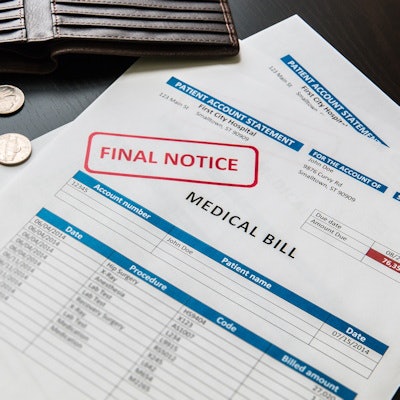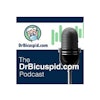
Rising healthcare costs have been a concern for many Americans and can often lead to healthcare debt, whether patients are insured or not. A survey conducted by the Kaiser Family Foundation reveals why patients accrue healthcare debt.
The Kaiser Family Foundation conducted surveys and interviews with 2,375 patients, and the findings indicate that 41% of adults currently have some form of healthcare debt from medical or dental bills.
Discussions surrounding healthcare debt in the U.S. have been primarily centered around medical bills that patients are unable to pay or bills that have been sent to collections. However, healthcare debt is much larger when considering the types of debt that are caused at least somewhat by medical and dental bills.
The survey defined healthcare debt as "any money respondents currently owe or debt they have due to medical or dental bills for their own or someone else's medical or dental care," according to the team of analysts, led by Lunna Lopes. This included debts patients are unable to pay but also bills they are paying off over time directly to providers, debt owed to banks or other lenders, loans used to pay for medical or dental bills, bills that were placed on credit cards, and debt owed to friends and family.
Of those who have accrued healthcare debt, 67% said that they have not fully paid their medical bills because they do not have the money to pay them. Another 68% of patients said they have not paid their bill because they expect insurance to cover it, and 44% said they have not paid their medical bill because they believe the bill is inaccurate.
Almost one-quarter of participants reported having bills that are past due that they are unable to pay, and about 1 in 5 patients are paying bills directly to a provider over time. Another 17% have taken out a loan or used a credit card to pay their bills, and 10% have borrowed money from someone else.
Most (59%) adults who currently have healthcare debt anticipate their ability to pay it off within two years, including one-third who think they will pay it off within one year. But 18% do not think they will ever be able to pay their debts.
The findings also confirmed that being insured does not guarantee avoidance of medical debt. More than 4 in 10 insured adults reported current debt.
According to the survey, healthcare debt peaks among those between the ages of 30 and 49, with 52% of participants within this age group reporting healthcare debt. About half of those within this age group are parents of children under 18 years of age, and parents are likely to accrue medical debt for their children.
For adults ages 65 and older, 22% report having healthcare debt. While Medicare provides coverage to seniors, some gaps can leave beneficiaries with substantial out-of-pocket expenses, according to the Kaiser Family Foundation.
Further, almost half (48%) of women say they have medical debt compared to 34% of men. Black patients (56%) and Hispanic patients (50%) reported having debt due to medical or dental bills compared to 37% of white adults.
"Among those with debt due to medical or dental bills, those with lower incomes and people of color (particularly Black adults) are more likely than their counterparts to report experiences like being contacted by collection agencies due to health care debt, being denied subsequent care, and making difficult sacrifices like changing their housing situation to pay down their debt," concluded the study authors.



















